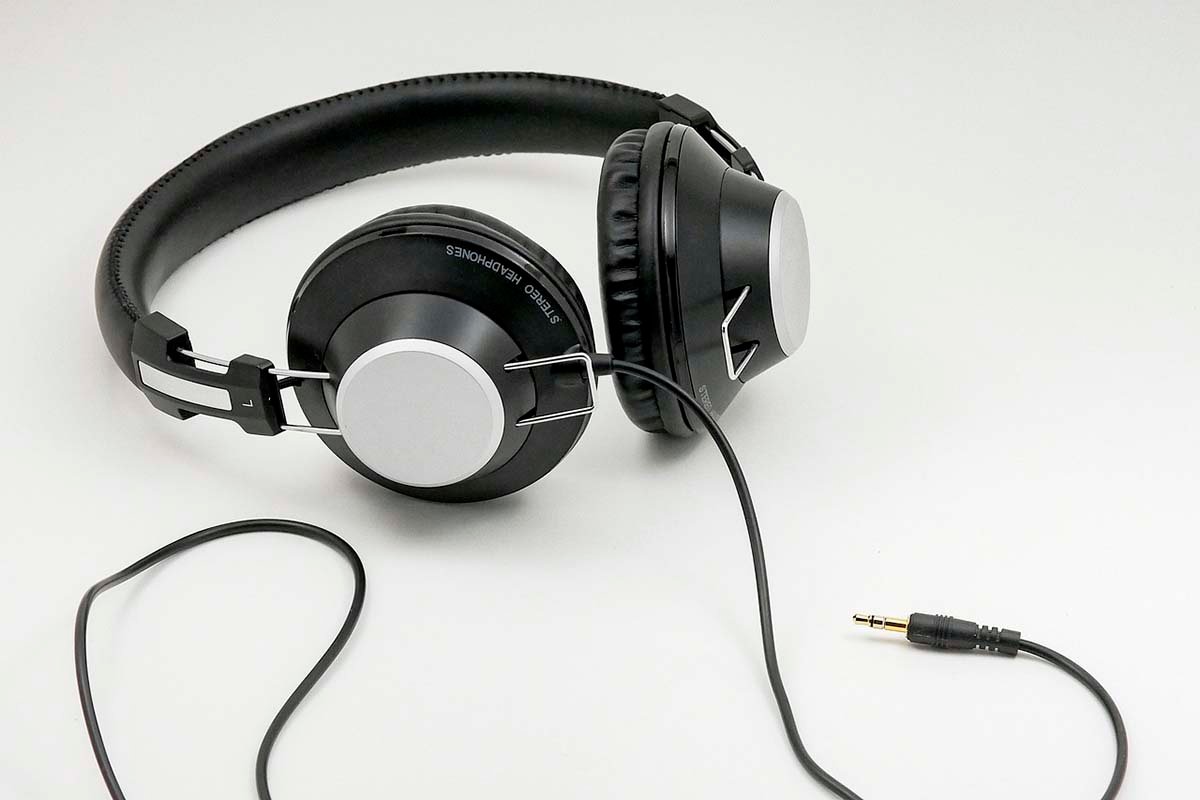If you’re an avid music listener or just someone constantly using headphones, you’ve probably noticed the differences between wired and wireless headphones.
While wireless headphones are more convenient for various reasons, they’re not as loud as wired headphones, but why?
Wired headphones are louder than wireless headphones because wired headphones aren’t limited to the volume output. Most wireless headphones have software limits on the max volume output to protect hearing. Therefore, wired headphones can technically be much louder.
The rest of this article will discuss why most wireless headphones have a volume limit, what that limit typically is, why wired headphones have a better sound quality, and any dangers associated with Bluetooth technology.
It’ll also explore the pros and cons of both wired and wireless headphones.
Page Contents
Why Do Wireless Headphones Have a Volume Limit?

Wireless headphones, or Bluetooth headphones, have become more prevalent in recent years.
Many people prefer the cordless option because it’s less messy and offers more freedom when worn, and it looks better.
With the Bluetooth version of headphones came a limited max volume output, but why is that?
Many wireless headphones have a limited max volume output to cut down on the hearing loss rates.
While some Bluetooth headphones still reach incredibly high decibel levels that can damage the ears, many companies (such as Apple and Android) have taken precautions to prevent the problem.
Along with limiting the maximum volume output in many wireless headphones, Apple and Android have begun including volume limiters in their devices as a way to combat hearing loss in teens and young adults.
More Adolescents Today Are Experiencing Hearing Loss
Studies have shown that teenagers and young adults are experiencing noise-induced hearing loss (NIHL).
Research indicates that listening to personal music players at a high intensity for long periods is associated with noise sensitivity, distortion and even poses the risk of permanent hearing loss.
Studies show that 12–15% of children, teens, and young adults may be affected by hearing loss due to listening to music at a high intensity during leisure time.
As many adolescents and young adults spend time listening to music through headphones every day, the rates of hearing loss are only growing larger.
Why Do Wired Headphones Have Better Sound Quality?

When it comes to sound quality, many often assume that wireless headphones will have overall better rates since they’re typically more expensive. That’s not always the case, though.
While wireless headphones have more expensive technology, the sound quality isn’t the same as wired headphones.
Wired headphones have better sound quality because their codec, or device that creates a signal through streaming media, is significantly better than wireless headphones.
Although wireless headphones are more advanced in many ways, the sound quality isn’t as good as wired headphones.
In fact, the SoundGuys blog even writes that there’s no codec available that meets the wired signal quality.
However, the difference between most wireless headphones and wired headphones is minimal.
Therefore, many people wouldn’t hear the difference, especially if the person already has some sort of NIHL.
The Difference in MP3 Sound Quality Isn’t Always Noticeable
As stated, the sound quality of wired headphones has been proven to be better.
However, the type of format the file is in plays a role in whether you’ll be able to notice the difference.
While most of the time you wouldn’t be able to tell (if your music is in MP3 format), other forms will be more distinguishable.
These may include:
- Apple Lossless Audio Codec (ALAC)
- Free Lossless Audio Codec (FLAC)
- Waveform Audio File Format (WAV)
Considering that most people listen to music in the MP3 format, the differences in sound quality shouldn’t be too noticeable.
Wireless Headphones Can Impact Your Health
Another advantage to wired headphones for many people is that they’re not as bad for you as wireless.
Many people are concerned about Bluetooth headphones as they can increase cancer risk due to the electromagnetic fields (EMFs).
EMFs are invisible areas of radiation that come with wireless devices.
While there’s conflicting evidence on whether the EMFs from Bluetooth headphones link to cancer because cell phones are a more significant cause of radiation, some experts are concerned about the placement of the headphones.
The specific absorption rate (SAR), or how much radiofrequency we absorb from a device, is something essential to consider as well.
While both wireless and wired headphones contain some SAR, cell phones have a higher SAR rating, so using either type of headphones is typically better for you.
Therefore, both wireless and wired headphones are no worse for you than using a cell phone.
How To Choose Between Wired or Wireless Headphones
While wired headphones are superior to wireless headphones in terms of quality, there are pros and cons to each one.
These pros and cons also depend on several factors, and everyone will have a different opinion.
Below I’ll discuss the differences between wired and wireless headphones and why people prefer one over the other:
Wired Headphones

Wired headphones are smaller versions of speakers. With a cord that plugs into the headphones and listening device, it’s nice and dependable.
Although technology is changing and many people are going cordless, many people continue to use wired headphones.
Pros
- They’re dependable. You don’t have to worry about charging wired headphones, as they work through the cord and can be used at any time.
- The sound quality is better. As I’ve already mentioned, the overall sound quality of wired headphones is better than any Bluetooth set, and you have more control over the maximum volume.
- They’re more affordable. Depending on the type of headphones you get, wired headphones are typically less expensive than wireless headphones.
- They can connect to almost anything. Most wired headphones have the same, almost universal, input. This makes it easier to link to other listening devices without any trouble.
Cons
- They rely on a cable. One of the only downsides to wired headphones is the annoying cable that can get in the way. Not to mention they can get tangled,
- The cord will eventually wear down. After extended use, it can wear down. Low-quality ones may wear down faster and stop working. While many newer versions of wired headphones have replacement cords you can easily buy, you might find this a hassle.
Wireless Headphones

Wireless headphones, or Bluetooth headphones, have become all the rage. Not only do they look cooler, but they can make life easier as long as you don’t mind the downsides.
If you’re an avid headphone user who stays on top of their technology, wireless headphones just might be worth it.
Pros
- They’re hands-free. The beauty of wireless headphones is that you can put them on and leave your listening device behind (as long as you don’t stray too far). Whether you’re cleaning around the house or going for a jog, not having that cord in the way is a game-changer.
- They often offer added features. Many wireless headphones also come with water-resistant properties or even virtual assistant capabilities, allowing you to be hands-free.
Cons
- They’re more expensive. Bluetooth technology doesn’t come for free, so wireless headphones are usually more costly than others.
- You have to charge them. There’s nothing worse than grabbing your wireless headphones and realizing you forgot to put them on charge. Depending on how often you use them, you might have to charge them every day.
- The sound quality isn’t always the best. Recent technological advancements have made wireless headphones’ sound quality just as good as wired. However, avid headphone users might still be able to tell the difference.
Final Thoughts
Wired headphones are typically louder than wireless headphones because they don’t have the maximum volume range that many wireless headphones have.
Many people listen to their headphones at damaging intensities, leading to noise-induced hearing loss in adolescents and young adults.
Wired headphones, due to the better, direct connection, are louder and offer better sound quality. However, this better sound quality is minuscule, so many people won’t notice the difference.
Both wired and wireless headphones have their pros and cons, and it just comes down to preference.

